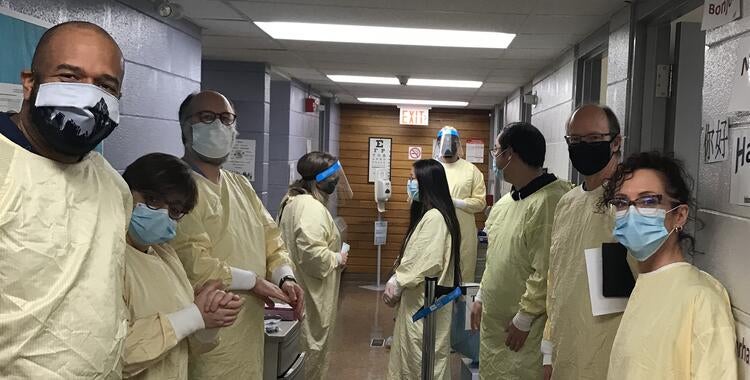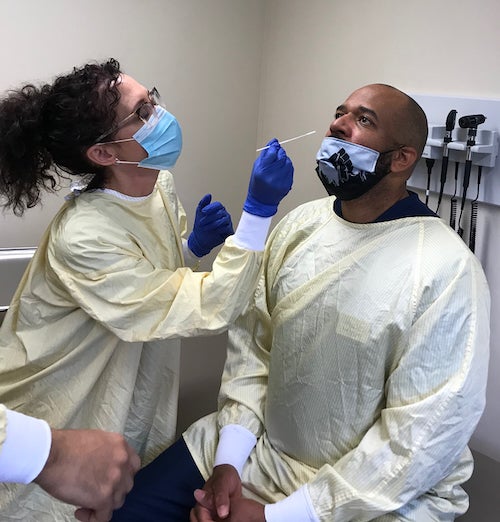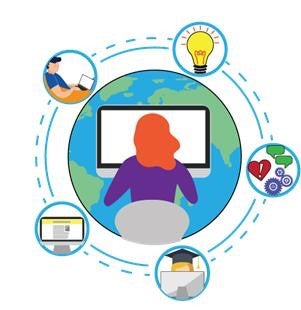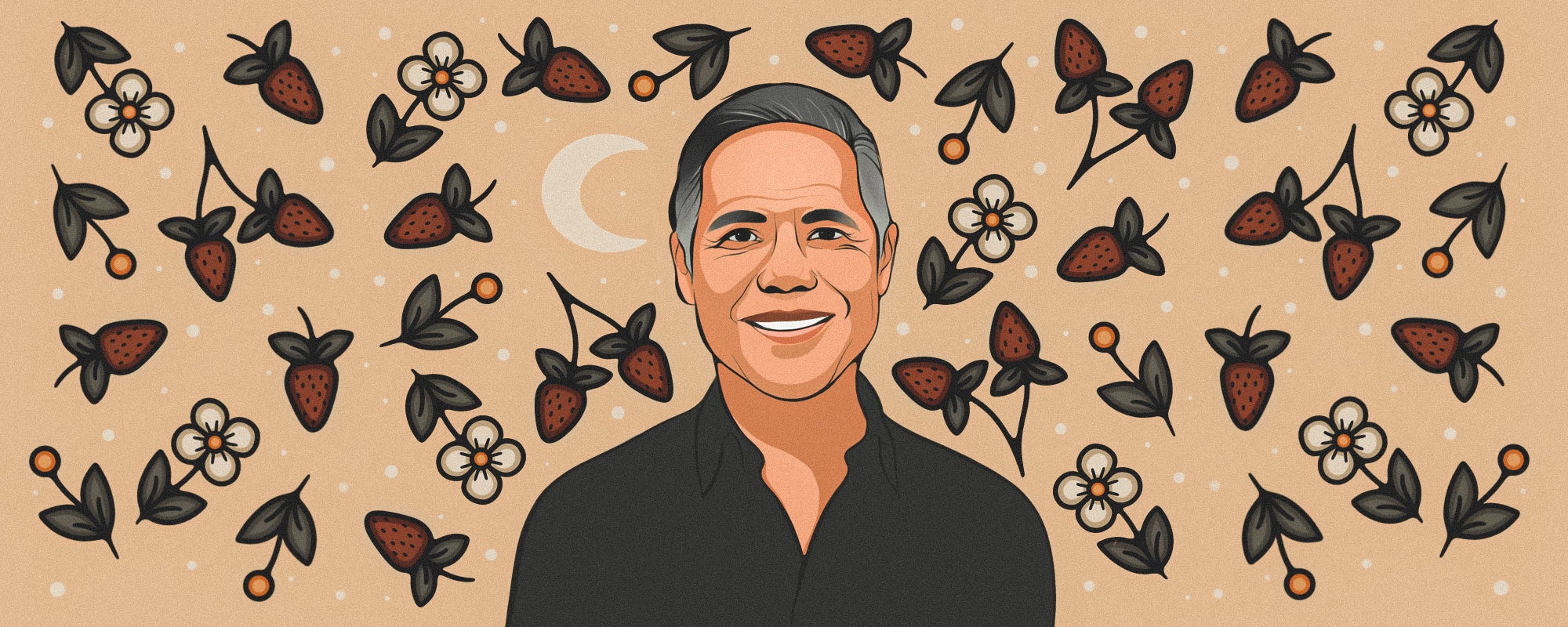Editor:
Brandon Sweet
University Communications
bulletin@uwaterloo.ca
Applications open for new Climate Change Fund

A message from Concept.
Concept and Waterloo’s Interdisciplinary Centre on Climate Change (IC3) are teaming up once again to help support University of Waterloo students with aspirations to help fight climate change. Applications are now open for the new Climate Change Fund, a partnered grant program that will award $7,500 to student-led teams who are developing innovative solutions to climate change.
“We’re really excited to launch the Climate Change Fund this term,” says Simon Glauser, managing director of IC3. “This further strengthens the partnership between Concept and IC3, and expands our joint commitment to support entrepreneurship in an area where we know that Waterloo students can have a great impact.”
The launch of the Climate Change Fund follows the success of the recently completed Climate Innovation Discovery Stream, which saw over 50 UWaterloo students spend three weeks researching climate change related problems to identify potential solutions. Where the Discovery Stream focused on problem identification, this new fund will provide financial support to help Waterloo students develop innovative solutions.
“The Climate Innovation Discovery Stream showed the desire and commitment in the UWaterloo community to build future-focused ideas aimed at negating the harmful effects of climate change,” says John Dick, interim director of Concept. “This fund is designed to help students go beyond their initial ideas and work towards creating sustainable startups with a global impact.”
Applications for the Climate Change Fund are open until March 21 and are open to all students and post docs. The top applicants will be selected to advance to the interview round to further discuss their climate change related solutions with a prestigious group of judges tasked with determining the winners. Visit the Concept website for more information on the Fund and see how you can focus your entrepreneurship on the fight against global climate change.
Optometry clinic participates in COVID-19 rapid test pilot program

This article was originally featured on the School of Optometry & Vision Science's website.
One of the most challenging parts of a taking a COVID-19 test is how long it can take to get results.

In coordination with the Campus Wellness, the School of Optometry & Vision Science’s main clinic is currently participating in a provincial pilot program to deliver COVID-19 Panbio rapid antigen tests directly onsite. Results are available within fifteen minutes, instead of the typical 48-hour timeframe for other COVID tests.
Administered by a registered nurse, voluntary testing is available to staff and students for fifteen hours per week. To date, the clinic has performed nearly 600 tests and registered 100 per cent negative results.
Clinic Director Dr. Andre Stanberry says that frequent, ongoing testing has been key to ensuring safety remains a top priority while still efficiently delivering quality patient care.
"The convenience of having rapid testing onsite has made it very easy to do twice weekly,” says Stanberry. “Our participation in the pilot program shows patients that our facility is serious about taking precautions. That, in addition to personal protective equipment (PPE), we’re doing all we can to monitor staff closely so we can keep everyone as safe as possible".
In collaboration with five partners, the Ontario Ministry of Health launched the eight-week pilot program in mid-December. The University of Waterloo is one of three participating universities and the only optometry clinic.
Through the pilot program, the University of Waterloo has coordinated to ensure rapid testing is available to frontline workers across campus. Now at the end of the original eight-week timeframe, there is hope that the Ministry of Health will extend the program to its partners for up to six months.
"For rapid testing to effectively prevent outbreaks, frequency is extremely important,” says Dr. Clark Baldwin, University of Waterloo’s Medical Director. “The optometry clinic has really been a model for the rest of the university on how to utilize rapid testing effectively."
"Dr. Stanberry and his team have really stayed the course in making sure the clinic remains safe for staff, students and patients".
Open course encourages student success at Waterloo and beyond
By Ceili Minten. This article was originally published on the Open Scholarship at Waterloo website.

A Waterloo course on fostering student engagement in online courses is designed for easy use at international institutions.
Although research shows that students who feel connected to their instructor and to other students do better, there is a lack of quality educational resources to help instructors create and foster these connections.
Noticing this lack of resources, Daniel Opperwall and Kristin Wilson, both online learning consultants at the Centre for Extended Learning, created Fostering Engagement: Facilitating Online Courses in Higher Education. It provides evidence-based strategies and best practices to help teaching assistants and instructors to be effective in their roles and to better humanize learning.
While this resource is text-based, it has also been adapted to LEARN as a training course for TAs and online learning instructors that is offered each term. Some LEARN-specific interactions have been added to make the course more interactive. Over 200 TAs and instructors have taken this course as part of Getting Ready to Facilitate Online.
International use

Opperwall (left) and Wilson (right) hope that other institutions will use this asset. They avoided Waterloo branding and phrasing. They stayed platform agnostic, knowing that although they planned to use LEARN, platforms vary at other institutions.
Finally, they gave it an open licence. The CC BY-NC-SA 4.0 license means that others can use and modify the material to suit the needs of a particular institution as long as certain license requirements are met (e.g., attribution, noting changes if any are made, giving a derivative work the same license as the original).
As the license does not require downstream users to report their use of the asset to the creator(s) and as they have not undertaken marketing yet, they are not sure what the uptake of the course has been.
Evolution
Opperwall and Wilson hope that others will continue to build upon and improve the course. They hope that it will not only brings awareness about facilitating student engagement but that it will help people consider the value of creating open educational resources (OERs), themselves: sharing intellectual property can help ideas and knowledge evolve.
Indigenous Speakers Series returns with talk on COVID-19

The Faculty of Arts and the Waterloo Indigenous Student Centre have announced that the Indigenous Speakers Series returns this week. The first of its online events takes place on Thursday, March 4, featuring Dr. Evan Adams who will be addressing the impacts of COVID-19 on Indigenous communities in Canada.
Evan Tlesla II Adams is a Coast Salish actor and physician from the Tla’amin First Nation near Powell River, BC, Canada. Evan stars as Thomas Builds-The-Fire in Miramax’s 1998 film Smoke Signals, for which he won Best Actor awards from the American Indian Film Festival, and from First Americans in the Arts, as well as a 1999 Independent Spirit Award for ‘Best Debut Performance’. He won a 2011 Gemini Award for co-hosting the National Aboriginal Achievement Awards along with Adam Beach.
Aside from his career in the arts, Dr. Adams completed a MD from the University of Calgary in 2002, and a residency in the Aboriginal Family Practice program at St. Paul's Hospital in Vancouver, BC. Dr. Adams has a Master of Public Health (2009) from Johns Hopkins University. He was the first-ever Aboriginal Health Physician Advisor in the Office of the Provincial Health Officer, BC Ministry of Health (2007-2012). He was the Deputy Provincial Health Officer for the province of BC from 2012 to 2014. He is currently the Chief Medical Officer of the First Nations Health Authority.
You can join the event on Thursday, March 4 from 12 noon to 1:00 p.m. via the livestream link. No sign-in or registration is required, but please note, if you join on a mobile device or tablet, you’ll need the Teams app.
Please mark your calendar for noon on April 8, when the Indigenous Speakers Series presents Professor Logan MacDonald (Department of Fine Arts), Canada Research Chair in Indigenous Art.
Renison offers international cooking classes and other notes

Love trying new foods? Curious about learning how to cook international dishes? Renison’s Community and Professional Education is offering three International Cooking Classes, starting in March. Dishes include Jiaozi Chinese Pork Dumplings (March), Mulligatawny Chicken and Red Lentil Curry (April), and Homemade Potato Gnocchi Prepared Two Ways (May).
You can purchase the classes as a bundle of three, or choose to register for classes separately. There are two options for registration:
- Purchase the class(es) with a kit that includes the recipe, ingredient list, and all the required portioned ingredients. Delivery is available within Waterloo Region, or kits will be available for pickup at Renison.
- Purchase the class(es) and receive the recipe and ingredient list to purchase items on your own.
Learn more and register at: uwaterloo.ca/cape/cooking-classes.
Here's today's Nutrition Month "Myth vs. Fact" supplied by Health Services Dietician Sandra Ace:
Myth: Pandemic-related stress eating is almost inevitable.
Fact: There are many solutions and supports to help manage stress-related eating.
It has been a fascinating year for food, during which there have been some positive COVID-related food outcomes which are likely to enhance people’s health. I’ll talk more about these in a future column. Not everything has been positive, however. The pandemic has increased stress for many reasons, including health concerns, the challenges of both working from home and of virtual schooling, job security, financial pressures and isolation. I’ve heard from many of my clients that stress-related eating has affected their mental and physical wellness over the past year.
It’s not uncommon for eating habits to change when someone feels stressed. The University of Guelph, in a recent survey about COVID-related health outcomes, found that about 60 per cent of adults and children were snacking more on foods like chips and cookies. Everybody reacts differently to stress, but there are many strategies that can help you cope. Get enough sleep and find ways to be active, even if it’s a 15-minute walk in the fresh air or doing a short yoga class online. Eat structured meals at regular intervals during the day. Skipping or not having balanced meals can leave you hungry and more prone to snacking. Avoid overstocking your kitchen with calorie-dense snack foods, but plan for moderate portions of your favourite treats, enjoyed without guilt. Shop for mainly nutritious snacks; these can keep you energized, may help to decrease cravings and can prevent extreme hunger that leads to overeating. Combining foods that contain some protein with fibre-rich carbohydrates is a smart snacking plan. Some ideas: replace a mid-morning donut or muffin with fresh fruit or raw veggies and a hard boiled egg, an afternoon bag of chips with an apple with nut butter or a handful of unsalted nuts, and your evening bowl of ice cream with a serving of Greek or Icelandic yogurt topped with frozen berries.
Lastly, if you are struggling with stress-related eating, be compassionate with yourself and know that you aren’t alone. Make an action plan, speak with your regular healthcare provider and consider making an appointment with a registered dietitian and/or a counsellor who can help.
Link of the day
March is Music Therapy Awareness Month
When and Where to get support
Students can visit the Student Success Office online for supports including academic development, international student resources, leadership development, exchange and study abroad, and opportunities to get involved.
Instructors can visit the Keep Learning website to get support on adapting their teaching and learning plans for an online environment.
Updated Course templates are now available within your course in LEARN to help you build and edit your content and assignment pages quickly. Support for Winter 2021 is available.
The following workshops, webinars, and events are offered by the KL team (CTE, CEL, ITMS, LIB):
Independent Remote Course Design Essentials. Self-directed, continuous self-enrollment course in LEARN.
Introduction to Assessments in PebblePad (ATLAS) (CTE7512), Monday, March 8, 2:00 p.m. to 4:00 p.m.
Employees can access resources to help them work remotely, including managing University records and privacy of personal information. Here are some tips for staying healthy while working from home.
Stay informed about COVID cases on campus by consulting the COVID case tracker.
Whether you’re a student or faculty member, the Writing and Communication Centrehas virtual services and programs to help you with all of your academic writing needs. This term we have added evening and weekend one-to-one appointments with our peer tutors, and our NEW one-to-one workshops, where you can learn the content directly from one of our writing advisors.
- Undergraduates: Work with us to brainstorm, draft, revise, and polish your assignments in one-to-one appointments. Ask questions and learn writing tips at our Instagram Live Q&A sessions, and beat isolation while improving your writing skills at the weekly PJ-friendly writing groups.
- Graduates: Meet with our advisors in one-to-one appointments. Join the online writing community at the Virtual Writing Cafés, learn how to present your work at Speak Like a Scholar, or get moving on your dissertation at Dissertation Boot Camp.
- Faculty and Instructors: Request custom workshops for your courses, join the Waterloo writing community at the Virtual Writing Cafés, or make progress on your article, book, or chapter in one-to-one meetings with our faculty specialist.
Co-op students can get help finding a job and find supports to successfully work remotely, develop new skills, access wellness and career information, and contact a co-op or career advisor.
The Centre for Career Action assists undergraduates, graduate students, postdocs, staff, faculty, and alumni through navigating career services that are right for them. You can attend a one-on-one appointment or same day drop-in session at the CCA for assistance with cover letter writing, career planning and much more. You can also book an appointment online or visit our Live Chat to connect with our Client Support Team. The CCA is here to help you.
If you feel overwhelmed or anxious and need to talk to somebody, please contact the University’s Campus Wellness services, either Health Services or Counselling Services. You can also contact the University's Centre for Mental Health Research and Treatment. Good2Talk is a post-secondary student helpline available to all students.
The Library has published a resource guide on how to avoid information overload.
The Faculty Association of the University of Waterloo (FAUW) continues to advocate for its members. Check out the FAUW blog for more information.
The University of Waterloo Staff Association (UWSA) continues to advocate for its members. Check out the UWSA blog for more information.
The Indigenous Initiatives Office is a central hub that provides guidance, support, and resources to all Indigenous and non-Indigenous campus community members and oversees the university Indigenization strategy.
The Waterloo Indigenous Student Centre, based at St. Paul’s University College, provides support and resources for Indigenous students, and educational outreach programs for the broader community, including lectures, and events.
WUSA supports for students:
Peer support (Visit https://wusa.ca/peersupport to book an appointment):
- MATES – Available Monday to Friday, 10:30 a.m. to 9:30 p.m.; Saturday and Sunday, 10:30 a.m. to 5:30 p.m. (online only)
- Support sessions available in the following languages: Cantonese, English, Hindi, Mandarin, Portuguese, Punjabi, Spanish, and Urdu.
- Glow Centre – Available Monday to Friday, 4:00 p.m. to 8:00 p.m. (online only)
- RAISE – Available Monday to Friday – Varied hours (online only)
- Women’s Centre – Available Monday to Friday, 2:00 p.m. to 5:00 p.m. (online only)
Bike Centre – Will be reopening soon. Check https://wusa.ca/bikecentre for current operating times.
Campus Response Team, ICSN, Off Campus Community and Co-op Connection all available online. Check https://wusa.ca for more details.
Food Support Service food hampers are currently available from the Turnkey Desk on weekdays from 7:30 a.m. to 7:00 p.m. in the Student Life Centre. If you have any questions please email us at foodsupport@wusa.ca.
Centre for Academic Policy Support - CAPS is here to assist Waterloo undergraduates throughout their experience in navigating academic policy in the instances of filing petitions, grievances and appeals. Please contact them at caps@wusa.ca. More information is available.
WUSA Commissioners who can help in a variety of areas that students may be experiencing during this time:
- Equity – equity@wusa.ca
- Co-op and Experiential Affairs – coop.affairs@wusa.ca
WUSA Student Legal Protection Program- Seeking legal counsel can be intimidating, especially if it’s your first time facing a legal issue. The legal assistance helpline provides quick access to legal advice in any area of law, including criminal. Just call 1-833-202-4571.
Empower Me is a confidential mental health and wellness service that connects students with qualified counsellors 24/7. They can be reached at 1-833-628-5589.
When and Where (but mostly when)
Healthy Warriors at Home. Free programming including Online Fitness, Health Webinars, Personalized Nutrition and more from Warriors Athletics and Rec. Open to students, staff, faculty and alumni. Register today.
Livestream Exercises for Waterloo staff: Join us for an energy boosting Bootcamp or a fast and effective Express Home Workout! Open to UW Staff and subsidized by the Staff Excellence Fund.
Renison English Language Institute continues to offer virtual events and workshops to help students practice their English language skills.
Warriors vs. Laurier Blood Donation Battle. Join your fellow Warriors, donate blood and help us win the Blood Battle against Laurier for a second year in a row. Set up a profile or add the PFL code: UNIV960995 to your account if you have a blood.ca account already. Questions? Contact WarriorsInfo@uwaterloo.ca.
Warrior Rec Free Programs for Students, January to February.Wide range of free opportunities available to keep students active and healthy including:Fitness Classes (On-Demand), Health and Mindfulness Webinars, Personalized Nutrition Guides, Personal Training Consultations, Small Group Training and Warrior Reset. Register today.
Drop-in to Warrior Virtual Study Halls on Wednesdays from 5:30 p.m. to 7:00 p.m. Come together in this virtual space to set goals and work independently or in groups each week.
Webinar: University partnerships to advance the SDGs: local, national, and international examples, Tuesday, March 2, 8:00 a.m. to 9:30 a.m., part of the University of Strathclyde Centre for Sustainable Development Webinar Series “Accelerating progress towards the SDGs in post-COVID era.”
English Conversation Circles, Tuesday, March 2, 4:00 p.m.
Concept Working Session: Pitch Perfect, Tuesday, March 2, 5:30 p.m., virtual event.
PJ-Friendly Writing groups for Undergrads, Wednesday, March 3, 10:00 a.m.
Noon Hour Concert: Phenomenal Women! Wednesday, March 3, 12:30 p.m. Free, online.
OER Workshop (Copyright, Licensing, Searching, and Selection), Wednesday, March 3, 11:00 a.m., Teams. Contact kblair@uwaterloo.ca or cpeters@uwaterloo.ca to register by March 2.
Virtual Writing Café, Wednesday, March 3, 2:00 p.m.
Managing Personal Wellness in a Global Pandemic: Breaking Free From Low Mood, Wednesday, March 3, 2:00 p.m.
Indigenous Speakers Series presents Dr. Evan Adams, Thursday, March 4, 12 noon.
Virtual Writing Café, Friday, March 5, 9:00 a.m.
NEW - Master of Taxation Virtual Information Session, Friday, March 5, 9:00 a.m. to 10:00 a.m. To register visit www.mtax.ca.